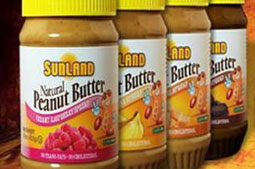Stay informed about food recalls
Posted in Health & Wellness on October 5, 2012
Foodborne illnesses kill more than 3,000 people each year in the United States. One in six Americans become sick from a foodborne illness annually. With numbers like that, it’s no wonder that food recalls are on the rise and awareness of the issue seems to be rising, as well.
 Food recalls in the United States increased during the second quarter of 2012, according to Stericycle ExpertRECALL, a company which aggregates and tracks cumulative recall data from the two main agencies involved in recalls – the Consumer Product Safety Commission and the Food and Drug Administration.
Food recalls in the United States increased during the second quarter of 2012, according to Stericycle ExpertRECALL, a company which aggregates and tracks cumulative recall data from the two main agencies involved in recalls – the Consumer Product Safety Commission and the Food and Drug Administration.
During the second quarter of 2012, FDA enforcement reports documented 169 food recalls initiated by 156 companies and affecting more than 5 million units, the fewest number of units affected by recalls in the past four quarters.
The recall numbers were up 19 percent from the first quarter of 2012 and up 16 percent from the second quarter of 2011.
The report found undeclared allergens or other allergen concerns remained the primary cause of recalls, accounting for nearly 40 percent of food recalls initiated. Foodborne illness concerns accounted for an additional 40 percent of recalls during the quarter, with Salmonella and Listeria being the most common reasons.
Total numbers have not been released yet for the third quarter of 2012, but a search of the FDA’s website shows there were 50 food-related recalls in September alone.
Most recently, a large recall of peanut butter and peanut butter products has made headlines. Before that, mangoes from Mexico sickened more than 100 people. And there have been several instances this year of bagged salads being recalled for possible contamination.
What should you do if you think you have recalled food?
When a food recall alert is issued, it usually includes information to help you identify whether you have the product in your pantry, refrigerator, or freezer and advises you what to do with it.
- Check the recall notice. Manufacturers will provide information on what to do with the product. Typically, the instructions will tell you to either return the product to the store where you bought it for a refund, or to dispose of the product properly (especially if it has been opened).
- To identify if a recall product is in your home, match identifying marks of the product with the recall notice details, such as product name and brand, container size and codes.
- Do not panic. Most recalls are not associated with a food illness outbreak, and many are issued because there is a potential for the food to be contaminated. Often recalls are issued as a precautionary measure.
- Do not eat the food. Even if you believe the recall to be just a precaution, do not eat the food! It is better to be safe than sorry. Do not donate the food to food banks or feed it to your pets.
- Do not open the food container. Opening the food and checking it can potentially release bacteria or viruses that cause food illnesses into your home. If you do open or handle the product, wash your hands thoroughly with warm water and soap.
- Preserve the evidence. If a portion of the suspect food is available, keep it, wrap it securely, mark “DANGER” and freeze it. Save all packaging materials (e.g. cans, labels, cartons). Save all purchase receipts.
- Seek treatment if necessary. If you become ill and believe your illness is due to a food product, contact your healthcare provider.
What can you do to protect your family from food affected by recalls?
The most important thing is to stay informed. It might seem hard to find the time to search out all products that have been recalled, but several websites are available to help make the process easier.
One good place to look is the FDA’s website. They keep a running list of recalled food products. You also can sign up to receive email notifications about recalls from the FDA. You can also find similar information at foodsafety.gov.
At Elk & Elk, we are serious about safety and helping keep you healthy. That’s why we use our social media feeds (http://www.facebook.com/ElkandElk and www.twitter.com/elkandelk) to help inform you anytime there are recalls of any kind.
To find out more about the personal injury attorneys of Elk & Elk, please check out our website.